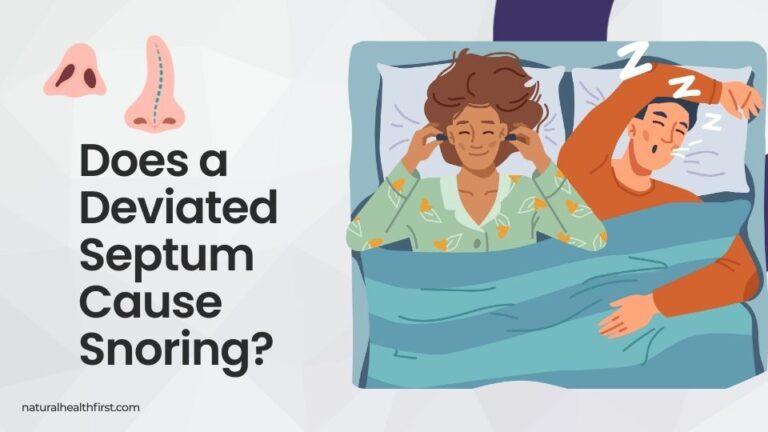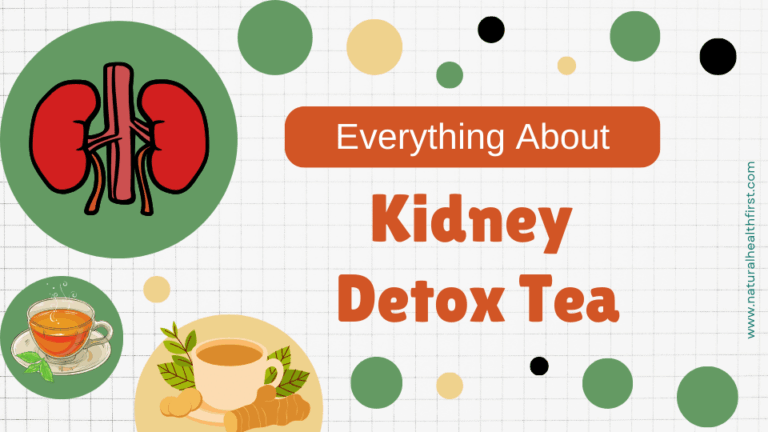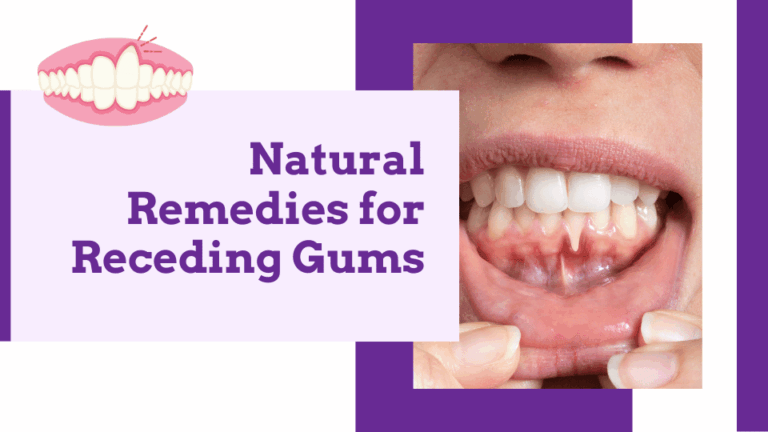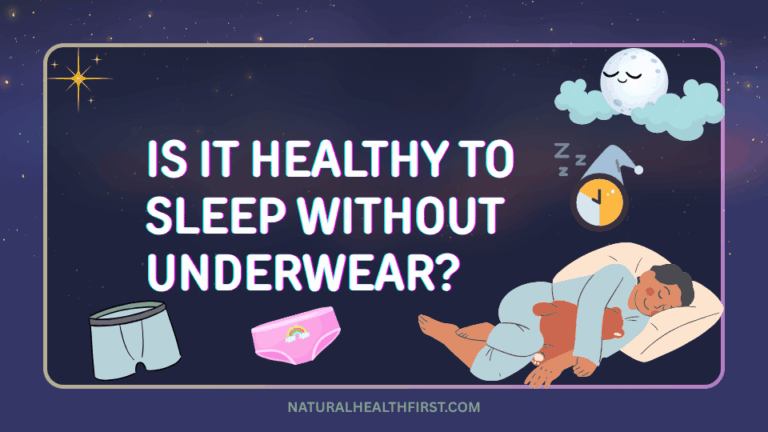Sleep apnea affects millions worldwide, and shockingly, experts say up to 83% of sufferers either can’t tolerate CPAP or simply don’t use it enough for effective relief. This isn’t just bad sleep—it’s increased risk for diabetes, heart attack, and impaired daytime function. The groundbreaking news? Natural remedies for sleep apnea, once considered “alternative,” are now surging in popularity, harnessing lifestyle changes, exercises, and holistic treatments that often rival medical devices in user satisfaction. This article exposes the science, strategies, and real-world results shaping the new natural approach.
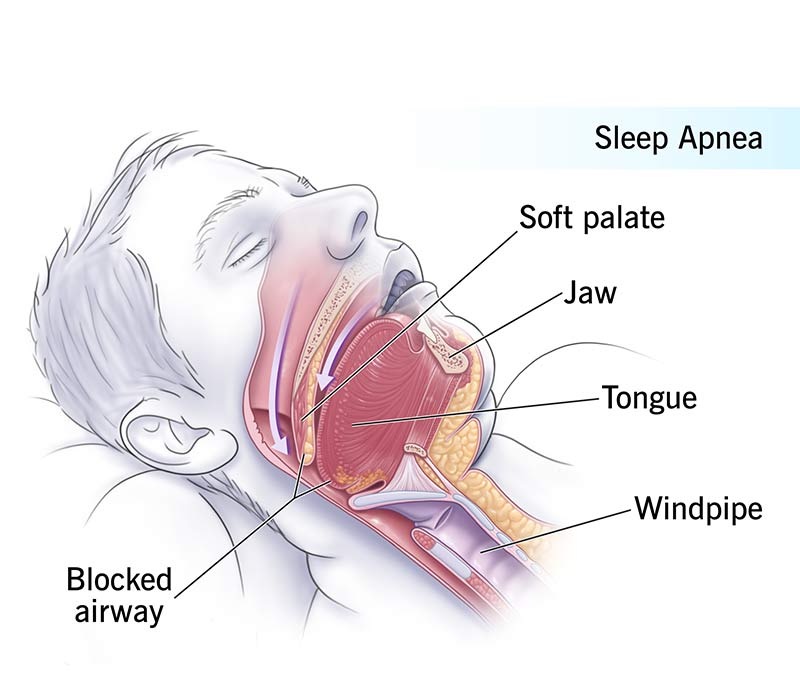
The Sleep Apnea Crisis—Why Natural Solutions Matter NOW
With diagnoses skyrocketing (over 34 million Americans affected and rising by 12% annually), sleep apnea is no longer a rare disorder. It disrupts breathing, triggers snoring, and wrecks sleep quality—often leading to devastating health complications. Most patients are handed a CPAP (Continuous Positive Airway Pressure) machine, but research shows up to 83% don’t comply with CPAP guidelines, citing discomfort, inconvenience, and high cost.
A global study found only 62.5% of patients with severe daytime sleepiness choose CPAP, while 29.5% prefer alternative options including natural remedies, highlighting the importance of collaborative treatment plans.
The Causes of Sleep Apnea
Obstructive sleep apnea (OSA) most commonly occurs when throat muscles intermittently relax and block the airway. The three main types are:
- Obstructive Sleep Apnea (OSA): The most common type, caused by blocked airways due to relaxed throat muscles.
- Central Sleep Apnea (CSA): A neurological form where the brain fails to send proper signals to muscles controlling breathing.
- Complex Sleep Apnea: A mix of obstructive and central forms.
Key Statistics
- Around 22 million Americans suffer from sleep apnea, with 80% of moderate to severe cases going undiagnosed.
- People with untreated sleep apnea are 2.5 times more likely to be involved in motor vehicle accidents due to daytime sleepiness.
- Sleep apnea is associated with increased risks of heart disease, stroke, obesity, and depression.
Major risk factors:
- Excess weight or obesity
- Neck circumference
- Smoking and alcohol intake
- Sleep position (worse on the back)
- Age and family history
Central sleep apnea, caused by improper brain signaling, is less common but also impacted by lifestyle and overall health.
12 Proven Natural Remedies for Sleep Apnea
1. Weight Management and Healthy Lifestyle
Obesity is one of the biggest risk factors for sleep apnea, as excess fat around the neck and throat can obstruct breathing.
Effective Strategies
- Adopt a calorie-controlled diet focusing on whole foods like vegetables, lean protein, and whole grains.
- Exercise regularly – at least 150 minutes of moderate activity per week.
- Track BMI and waist circumference to ensure progress.
| Factor | Risk Level (High) | Risk Level (Low) |
|---|---|---|
| BMI Above 30 | Strong risk | Lower risk |
| Neck Circumference | >17 inches (men), >16 inches (women) | Below these values |
| Sedentary Lifestyle | High risk | Active lifestyle |
Maintaining a healthy weight not only reduces sleep apnea episodes but also improves cardiovascular health.
2. Positional Therapy
Many sleep apnea episodes occur when sleeping on the back, as the tongue and soft palate collapse against the throat.
Natural Remedies for Sleep Apnea through Positional Therapy:
- Sleep on your side using body pillows.
- Use a tennis ball technique – sew a small ball into the back of your pajama top to discourage back sleeping.
- Try wedge pillows to elevate the head.
Clinical studies show positional therapy can reduce apnea episodes by up to 50% in positional OSA patients.
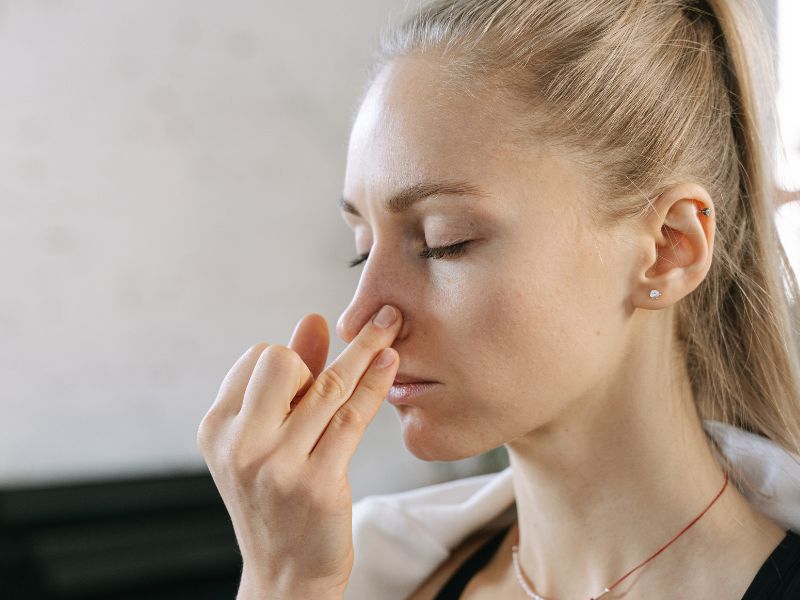
3. Breathing Exercises (Buteyko & Pranayama)
Strengthening the respiratory system is one of the most underrated natural remedies.
Effective Practices
- Buteyko Breathing: Focuses on nose breathing and CO₂ regulation.
- Pranayama Yoga Techniques: Such as “Anulom Vilom” and “Kapalabhati” to improve oxygen efficiency.
- Diaphragmatic Breathing: Helps expand lung capacity.
These exercises not only reduce apnea severity but also improve stress management.
Learn more about how nutrition supports better breathing.
4. Oral and Throat Exercises
Weak throat muscles contribute to airway collapse. Daily targeted exercises can strengthen these muscles naturally.
Examples of Throat Exercises:
- Singing therapy – vowel repetition improves muscle tone.
- Tongue push-ups – press the tongue against the roof of the mouth.
- Chewing exercises – simulate chewing gum without actual gum.
A 2015 study found that people who performed throat exercises daily experienced a 39% reduction in apnea severity.
5. Herbal Remedies and Supplements
Certain herbs and natural supplements may alleviate mild sleep apnea symptoms.
- Valerian Root: Supports relaxation and deeper sleep.
- Lavender: Known for its calming effect.
- Magnesium: Relaxes airway muscles.
- Melatonin: Regulates sleep cycles, especially useful for central sleep apnea.
Comparison Table of Herbal Remedies
| Remedy | Primary Benefit | Usage Form |
|---|---|---|
| Valerian | Promotes relaxation | Tea, capsules |
| Lavender | Calms the nervous system | Essential oil, tea |
| Magnesium | Relaxes muscles | Supplements |
| Melatonin | Regulates sleep cycles | Tablets |
Always consult a healthcare provider before starting supplements.
6. Anti-Inflammatory Diet
Inflammation in the airways can worsen sleep apnea. A nutrient-rich diet reduces inflammation and promotes overall respiratory health.
Foods to Include
- Omega-3 fatty acids (salmon, flaxseed, walnuts)
- Leafy greens and cruciferous vegetables
- Turmeric and ginger for anti-inflammatory properties
- Berries and citrus fruits for antioxidants
Foods to Avoid
- Processed meats and refined sugars
- Alcohol before bedtime
- High-fat fried foods
A Mediterranean-style diet has been shown to improve sleep quality and reduce apnea severity.
7. Essential Oils and Aromatherapy
Essential oils can help open nasal passages and promote relaxation.
- Peppermint Oil: Reduces airway inflammation.
- Eucalyptus Oil: Clears nasal congestion.
- Chamomile Oil: Promotes deeper sleep.
Using a diffuser at night or applying diluted oils around the neck and chest area can be a practical natural approach.
8. Maintaining Good Sleep Hygiene
Poor sleep hygiene worsens apnea symptoms. Implementing structured routines can make natural remedies more effective.
Best Practices
- Maintain consistent sleep schedules.
- Keep the bedroom dark and cool.
- Avoid caffeine and alcohol before bedtime.
- Limit screen time at least one hour before bed.
This ensures restorative deep sleep phases that reduce apnea complications.
9. Hydration and Airway Moisture
Dry airways can worsen apnea symptoms. Proper hydration and humidified air are simple but powerful natural remedies.
- Drink at least 8 glasses of water daily.
- Use a humidifier in the bedroom to prevent airway dryness.
- Warm steam inhalation before bedtime can clear nasal passages.
Dehydration thickens mucus, making it harder to breathe freely during sleep.
10. Reducing Alcohol and Smoking
Both alcohol and smoking directly worsen sleep apnea by relaxing airway muscles and causing inflammation.
- Alcohol increases apnea events by 25%–40% in OSA patients.
- Smoking irritates airways, increasing snoring and breathing disruptions.
Quitting smoking and reducing alcohol are two of the most effective natural remedies for sleep apnea that bring both immediate and long-term benefits.
11. Acupuncture and Alternative Therapies
Acupuncture has gained recognition as a supportive natural therapy. Research suggests it may stimulate airway muscles, reduce inflammation, and improve oxygen flow.
Other complementary approaches:
- Chiropractic adjustments for better airway alignment.
- Cupping therapy for relaxation.
- Massage therapy to reduce stress and improve circulation.
While more research is needed, these therapies provide additional holistic options.
12. Monitoring and Tracking Sleep Patterns
Technology now allows patients to track sleep quality without visiting a lab.
Tools to Use
- Wearable sleep trackers (Fitbit, Oura Ring)
- Smartphone apps with audio monitoring
- Home-based pulse oximeters
By monitoring changes, individuals can measure the effectiveness of natural remedies for sleep apnea over time.
Exercise and Physical Activity—Why Fitness Is an Unexpected Game-Changer
Aerobic exercise, yoga, and resistance training benefit sleep apnea sufferers by reducing inflammation and promoting weight loss, but also by directly improving airway tone and lung function.
Sample Weekly Routine:
- 30 minutes brisk walking 5x/week
- Yoga and breathing exercises (diaphragmatic, alternate nostril breathing)
- Strength training 2x/week
Nutrition’s Role in Sleep Apnea
Nutrition changes can help you thrive:
- Focus on high-fiber vegetables, lean protein, and healthy fats
- Reduce processed carbohydrates and sugary foods that spike inflammation and weight gain
- Stay hydrated—dry airways lead to greater obstruction
For snacks and nutrient-dense meal plans, see our complete nutrition category.
Herbal and Alternative Therapies—Trending Remedies
Supplements and Herbs that May Help:
- Melatonin (regulates sleep cycles)
- Magnesium (supports muscle tone, relaxation)
- Valerian root (sedative, may reduce awakenings)
Essential Oils:
- Lavender, peppermint, and eucalyptus (used in diffusers, may promote deep sleep and reduce snoring)
Acupuncture:
Studies now indicate acupuncture may reduce apnea severity by promoting neuromuscular relaxation and improving overall sleep quality.
Honey:
Has anti-inflammatory properties and may soothe the throat, reducing snoring for some patients.
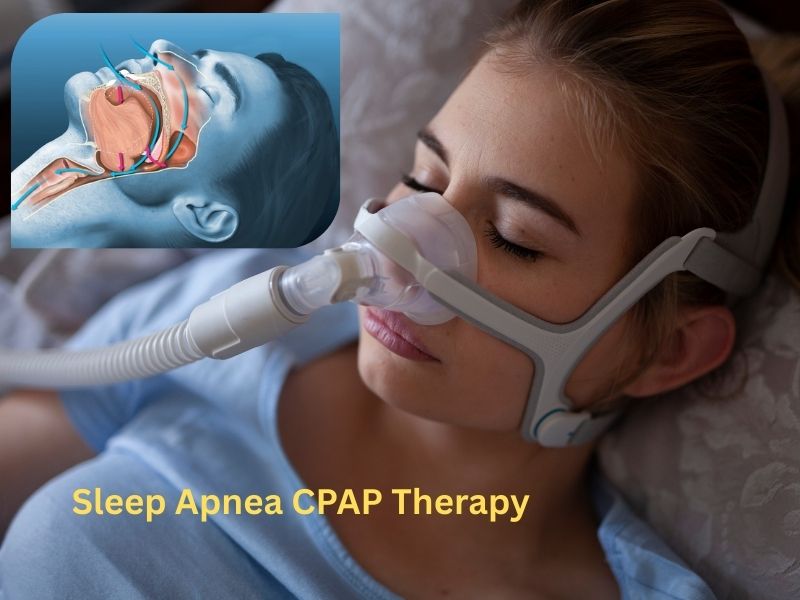
The Shocking Comparison: Natural Remedies vs. CPAP
| Method | Effectiveness | Compliance | Cost | Side Effects |
|---|---|---|---|---|
| CPAP | High if used | Low in real life | High (device, upkeep) | Mask discomfort, dry mouth, air swallowing |
| Weight Loss | Moderate-High | High w/ support | Low | Improves overall health |
| Exercise/Yoga | Moderate | High | Low (free options) | None, improves mood |
| Positional Therapy | Moderate | High (easy changes) | Low | None |
| Herbal Remedies | Mild-Moderate | Mixed | Moderate (supplement) | Drug interactions possible |
| Acupuncture | Mild | Moderate | Moderate-High | Bruising, cost |
| Nutrition Changes | Moderate | High if followed | Low | Improves overall health |
Recent studies show that many alternative methods rival CPAP in user satisfaction—especially when medical devices are not tolerated. In mild or moderate sleep apnea, these options can be life-changing.
How Widespread Is Sleep Apnea—And How Many Go Untreated?
- Over 34 million Americans affected; less than half diagnosed
- Global rates rising by up to 15% per decade
- Only 62–63% of those with significant symptoms pursue CPAP or APAP therapy—leaving a huge population relying on alternative or natural approaches
Surprising data: Of patients with comorbid conditions (diabetes, heart disease, metabolic syndrome), 43% opted for alternative management strategies over CPAP—especially when weight loss and nutrition improvements were key goals.
Seeking injury prevention in your routine? See our ACL injury prevention guide for body and sleep synergy.
Developing Your Personalized Natural Remedies for Sleep Apnea Plan
Step 1: Assess Your Risks
Track sleep quality, snoring, energy, and medical history to identify contributing factors.
Step 2: Commit to Weight Management
Work with nutritionists, use meal plans, and regular exercise to target BMI improvement.
Step 3: Choose Your Interventions
Combine side sleeping, exercise, herbal support, and environmental changes for a multi-pronged approach.
Step 4: Seek Medical Input
Work with sleep specialists and primary care physicians to monitor progress and rule out severe forms needing device therapy.
Step 5: Monitor Results
Keep a nightly journal and consider periodic sleep studies to track changes in breathing, snoring, and daytime alertness.
Long-Term Outlook—Trends and Shocking Future Predictions
Sleep experts predict that over 50% of mild-to-moderate sleep apnea sufferers will use natural remedies as their primary management method by 2030—driven by convenience, comfort, and increasing evidence of effectiveness.
Innovations in wearable devices, personalized nutrition plans, and remote coaching platforms are making it easier than ever to take control of your sleep apnea with natural remedies.
For full mental health support and emerging research, see our mental health nurse practitioner salary article.
Final Thoughts: The New Age of Sleep Apnea Management
Your journey with sleep apnea is a personal one, but the latest shockwaves in research make it clear: natural remedies for sleep apnea aren’t just a wellness trend—they’re a legitimate path to better nights and safer days for millions who can’t or won’t use CPAP. From weight management and nutrition tweaks to positional therapy and throat exercises, your options for restful sleep are expanding fast.
Dive deeper into holistic health strategies and discover practical sleep solutions in our full remedies section. Take charge, blend strategies, and reclaim your energy—for sleep that’s healthy, sustainable, and truly restorative.
Remember: Natural remedies for sleep apnea give hope, relief, and transformation—without the cost and hassle. Thousands have changed their lives. Are you ready to join them?
FAQs – Frequently Asked Questions
What is Sleep Apnea?
Sleep apnea is a sleep disorder where breathing repeatedly stops and starts during sleep. It often causes loud snoring, poor sleep quality, and daytime tiredness. If untreated, it can increase health risks like high blood pressure, heart disease, and diabetes.
What are the most effective natural remedies for sleep apnea?
The most effective natural remedies include weight management, side-sleeping, nasal breathing exercises, herbal supplements like valerian root, and avoiding alcohol or sedatives before bedtime.
Can herbal remedies really help with sleep apnea?
Yes, certain herbal remedies such as valerian root, chamomile, and passionflower may improve relaxation and sleep quality, which can indirectly ease mild sleep apnea symptoms.
How does weight loss help in treating sleep apnea naturally?
Excess weight, especially around the neck and airway, increases pressure on breathing passages. Losing weight reduces this pressure, helping keep airways open and reducing apnea episodes.
Are breathing exercises beneficial for sleep apnea?
Yes, targeted breathing exercises such as Buteyko breathing or yoga pranayama strengthen respiratory muscles, improve oxygen flow, and can help reduce mild to moderate sleep apnea symptoms.
Is positional therapy a safe natural remedy for sleep apnea?
Absolutely. Positional therapy encourages side-sleeping instead of sleeping on the back, which helps prevent airway collapse and reduces snoring and apnea events naturally.



